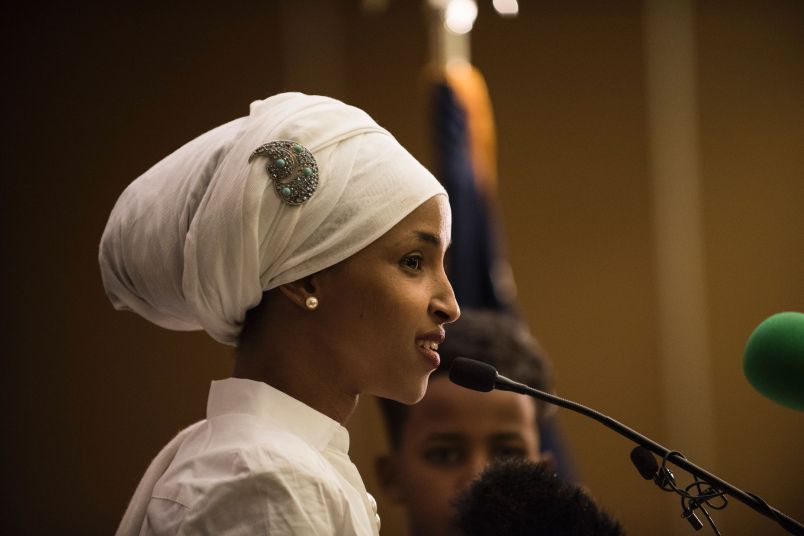Rep. Ilhan Omar (D-MN) has an army of critics who want to silence anyone in mainstream American politics (which includes anyone elected to Congress) who is critical of Israel. Many of those critics are driven by or leverage hostility to Muslims, as evidenced just yesterday with this bigoted poster at a West Virginia GOP event tying her to 9/11. But it is also true that she routinely uses words or phrases charged with deep anti-Semitic histories.
Last week at a panel discussion of Israel and charges of anti-Semitism she spoke of wanting to talk about “the political influence in this country that says it is okay to push for allegiance to a foreign country.” This afternoon in response to criticism of those comments she tweeted: “I should not be expected to have allegiance/pledge support to a foreign country in order to serve my country in Congress.”
Listening to this come up again and again it is clear that what is being conflated are criticisms of Israeli policy, whether not one “supports” Israel and insinuations about “allegiance” to Israel and particularly the idea that certain people or some “political influence” either has an “allegiance” to Israel or demands “allegiance” to Israel. Behind all these vague references it is clear that we are referring to American Jews.
What’s often hard for me to figure out is whether this is intentional or the product of some confusion or misunderstanding. At this point, if it’s a confusion or misunderstanding it seems either willful or ingrained.
Again, these are specific and charged words, talking about a foreign “allegiance.” “Allegiance” has a specific and almost always exclusive meaning. If you look up the biography of a military leader you’ll see the country they serve is referred to as their “allegiance.” It doesn’t means “support” or “consistent support” or even “lockstep support.”
American citizens are entitled to espouse foreign policy views of whatever sort they want. The American Jewish community’s support for Israel has had a decisive impact on US foreign policy toward Israel going back decades. Anyone with the vaguest acquaintance with recent American history knows this. But it is equally true that the anchor of unequivocal US policy support for Israel today and specifically the Israeli right is far more anchored among conservative white evangelical Christians than it is among Jews. As anyone who follows these issues knows, the American Jewish community is increasingly divided over the policies of the rightwing governments which have dominated Israel for the last generation.
However that may be, Omar should be able to express criticism of Israeli policies and US policies of support toward the Israeli government without repeatedly waltzing into claims about dual loyalties or foreign allegiances. I’m certain she would be criticized from many of the same quarters even she did simply criticize Israel and push for different US policies. But she doesn’t. And it happens again and again. That is unfortunate and I wish it weren’t so. But it is.






